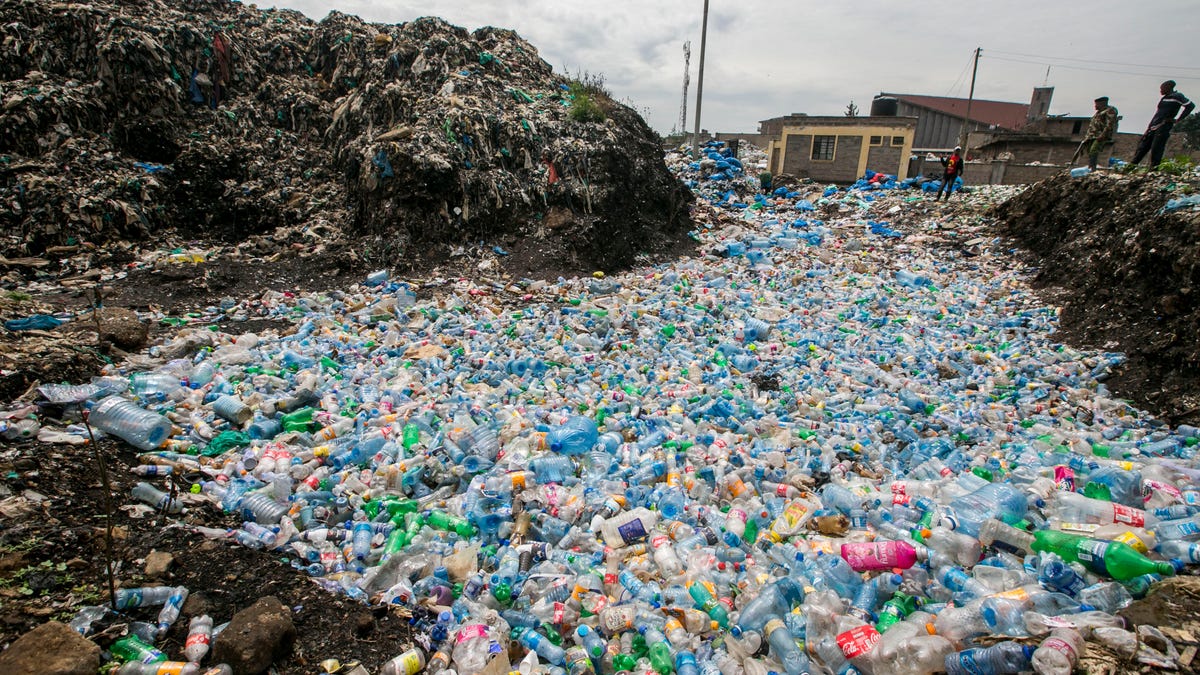Scientists create mutant enzymes that eat plastic bottles
A possible solution to the world's plastic pollution problem was created by accident.

There is more where that came from.
Mutants exist and they're helping to save the planet.
OK, not those kinds of mutants. But these are equally cool.
An international team of scientists has created a mutant enzyme that breaks down plastic drink bottles, according to the journal Proceedings of the National Academy of Sciences (the link is down at time of writing).
The creation of the enzyme came by accident when the team, led by Professor John McGeehan at the University of Portsmouth, UK, tweaked a bacterium they had discovered in a waste dump in Japan in 2016. The bacterium had naturally evolved to eat plastic, and the scientists inadvertently made it even better at breaking down polyethylene terephthalate, or PET, the plastic used for drink bottles. The break-down process starts in a matter of days, not the centuries it can take in the ocean.
"What actually turned out was we improved the enzyme, which was a bit of a shock," McGeehan told the Guardian. "It's great and a real finding."
In 2017, researchers found 38 million pieces of plastic waste on an uninhabited South Pacific island. Figures from the same year showed that a million plastic bottles are bought around the world every minute. That number is predicted to jump 20 percent by 2021.
"What we are hoping to do is use this enzyme to turn this plastic back into its original components, so we can literally recycle it back to plastic," McGeehan said. "It means we won't need to dig up any more oil and, fundamentally, it should reduce the amount of plastic in the environment."
Fingers crossed.
Cambridge Analytica: Everything you need to know about Facebook's data mining scandal.
iHate: CNET looks at how intolerance is taking over the internet.

